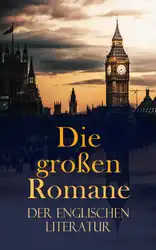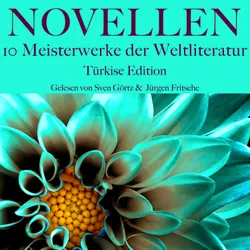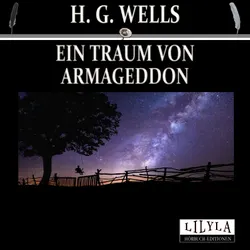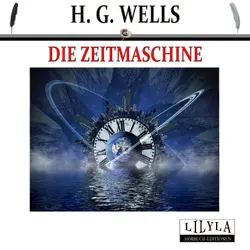The Research Magnificent H. G. Wells - The Research Magnificent is a 1915 novel by H. G. Wells.The text of this novel of ideas presents itself as a book that has been written as the result of a promise to a dying man. William Porphyry Benham is a man who has lived a life devoted to a complicated, protean idea: "that he had to live life nobly and thoroughly." He has left behind him "half a score of patent files quite distended [with papers] and a writing-table drawer-full," and the novel is by implication what his friend White, who has promised to "see after your book," has produced to acquit himself of the promise, since the papers themselves are "an indigestible aggregation."Benham is a man of means due to curious circumstances: his mother left his father, a schoolmaster, for a wealthy man named Nolan who died soon thereafter, but not before leaving "about a third of his very large fortune entirely to Mrs. Benham and the rest to her in trust for her son, whom he deemed himself to have injured." His mother subsequently marries a great London surgeon and becomes Lady Marayne; her indiscretion is forgiven and she enjoys a position of privilege.The bulk of the novel recounts Benham's effort to live nobly, which brings him into conflict with his mother, with his friend Prothero, a schoolboy chum who becomes a Cambridge don, and with his wife, Amanda, a young woman he loves passionately but then leaves behind in England to travel the world (India, Russia, China) in search of wisdom. It is in Johannesburg, South Africa, that Benham is fatally shot while attempting to stop soldiers firing at strikers.The body of the novel is preceded by a 55-page "prelude" entitled "On Fear and Aristocracy" that explains Benham's lifelong perplexity at the failure of human beings to be noble, and his early belief that the conquest of fear is the essence of the noble life. The six chapters of the novel, which tell Benham's life story, explore this perplexity. Benham dies in the midst of his quest, but his papers show that he has arrived at the tentative conclusion that there are four impediments, or "limitations" as he labels them, that keep human beings from living nobly: (1) fear; (2) self-indulgences, including sex; (3) jealousy; and (4) prejudice (by the last he means "the most remarkable array of influences, race-hatred, national suspicion, the evil side of patriotism, religious and social intolerance, every social consequence of muddle headedness, every dividing force indeed except the purely personal dissensions between man and man.")According to biographer David C. Smith, in The Research Magnificent Wells is "directly treating the early days of his life with Rebecca West, during which her possessive drive sometimes repelled him, but his sexual need brought him back"; features of his relationship with West include "the pet names, the violent and passionate early encounters, and the words, gestures, and 'business' which Wells needed so badly in his romantic life . . . and not in a comic way as was so often his method for dealing with such matters." It was during the writing of this book that Wells's son by Rebecca West, Anthony West, was born.

Die größten Meisterwerke der Weltliteratur : 200 Klassiker die man kennen muss
Fjodor Michailowitsch Dostojewski, Lord Byron, Franz Kafka, Victor Hugo, Giacomo Leopardi, Marcel Proust, Henrik Ibsen, Percy Bysshe Shelley, Charles Dickens, Jane Austen, Mary Shelley, Emily Brontë, Charlotte Brontë, Anne Brontë, William Makepeace Thackeray, Bram Stoker, Henry Fielding, George Eliot, William Shakespeare, D. H. Lawrence, Walt Whitman, Herman Melville, Thomas Wolfe, Virginia Woolf, Joseph Conrad, Sinclair Lewis, Lewis Carrol, Edgar Allan Poe, Edward Bulwer-Lytton, Oscar Wilde, H. G. Wells, Daniel Defoe, James Fenimore Cooper, Lew Wallace, Jonathan Swift, Robert Louis Stevenson, Mark Twain, Walter Scott, Nathaniel Hawthorne, Harriet Beecher Stowe, Laurence Sterne, Frances Hodgson Burnett, Arthur Conan Doyle, Washington Irving, O. Henry, Ambrose Bierce, Alexander Sergejewitsch Puschkin, Michail Lermontow, Iwan Sergejewitsch Turgenew, Leo Tolstoi, Nikolai Gogol, Iwan Gontscharow, Nikolai Leskow, Anton Pawlowitsch Tschechow, Maxim Gorki, François Rabelais, Jean de la Fontaine, Blaise Pascal, Pierre Corneille, Moliere, Pierre Ambroise Choderlos de Laclos, Antoine-François Prévost, Marquis de Sade
book
200 Meisterwerke der Literaturgeschichte : Die größten Klassiker der Weltliteratur
Franz Kafka, Victor Hugo, Fjodor Michailowitsch Dostojewski, Lord Byron, Giacomo Leopardi, Marcel Proust, Henrik Ibsen, Percy Bysshe Shelley, Charles Dickens, Jane Austen, Mary Shelley, Emily Brontë, Charlotte Brontë, Anne Brontë, William Makepeace Thackeray, Bram Stoker, Henry Fielding, George Eliot, William Shakespeare, D. H. Lawrence, Walt Whitman, Herman Melville, Thomas Wolfe, Virginia Woolf, Joseph Conrad, Sinclair Lewis, Lewis Carrol, Edgar Allan Poe, Edward Bulwer-Lytton, Oscar Wilde, H. G. Wells, Daniel Defoe, James Fenimore Cooper, Lew Wallace, Jonathan Swift, Robert Louis Stevenson, Mark Twain, Walter Scott, Nathaniel Hawthorne, Harriet Beecher Stowe, Laurence Sterne, Frances Hodgson Burnett, Arthur Conan Doyle, Wilkie Collins, Edgar Wallace, Jack London, Henry David Thoreau, John Galsworthy, F. Scott Fitzgerald, Rudyard Kipling, G. K. Chesterton, Washington Irvin, O. Henry, Ambrose Bierce, Alexander Sergejewitsch Puschkin, Michail Lermontow, Iwan Sergejewitsch Turgenew, Leo Tolstoi, Nikolai Gogol, Iwan Gontscharow, Nikolai Leskow, Anton Pawlowitsch Tschechow, Maxim Gorki, François Rabelais, Jean de la Fontaine, Blaise Pascal, Pierre Corneille, Moliere, Jean Baptiste Racine, Charles Perrault, Voltaire, Denis Diderot, Jean Jacques Rousseau, Pierre Ambroise Choderlos de Laclos, Antoine-François Prévost, Marquis de Sade, François René Chateaubriand, Stendhal, Honoré de Balzac, Alexandre Dumas, Alphonse de Lamartine, George Sand, Gustave Flaubert, Emile Zola, Guy de Maupassant, Alphonse Daudet, Jules Verne, Joris-Karl Huysmans, Prosper Mérimée, Charles Baudelaire, Stéphane Mallarmé, Arthur Rimbaud, André Gide, Arthur Schopenhauer, Heinrich Heine, Friedrich Schiller, Johann Wolfgang von Goethe, Jacob Grimm, Gottfried von Straßburg, Wolfram von Eschenbach, E. T. A. Hoffmann, Annette von Droste-Hülshoff, Heinrich von Kleist, Friedrich Hölderlin, Theodor Fontane, Gustav Freytag, Gottfried Keller, Theodor Storm, Stefan Zweig, Joseph von Eichendorff, Klaus Mann, Rainer Maria Rilke, Johanna Spyri, Joseph Roth, Karl May, Robert Musil, Heinrich Mann, Sigmund Freud, Friedrich Nietzsche, Dante Alighieri, Giovanni Boccaccio, Giacomo Casanova, Luigi Pirandello, Giosuè Carducci, Gabriele D'Annunzio, Niccolo Machiavelli, Miguel Cervantes de Saavedra, Pedro Calderón de la Barca, Vicente Blasco Ibañez, Knut Hamsun, Homer, Äsop, Herodot, Thukydides, Xenophon, Platon, Aristoteles, Sophokles, Euripides, Aristophanes, Laotse, Konfuzius, Siddhartha Gautama Buddha, Titus Livius, Tacitus, Marcus Tullius Cicero, Vergil, Ovid, Lukian, Petronius, Apuleius, Longos von Lesbos, Mark Aurel, Aurelius Augustinus
book
Die großen Romane der englischen Literatur : 50 Klassiker in einem Band
Charles Dickens, Mary Shelley, Jack London, Arthur Conan Doyle, Jane Austen, Emily Brontë, Charlotte Brontë, Anne Brontë, William Makepeace Thackeray, Bram Stoker, Henry Fielding, George Eliot, D. H. Lawrence, Herman Melville, Thomas Wolfe, Virginia Woolf, Joseph Conrad, Sinclair Lewis, Lewis Carrol, Edgar Allan Poe, Edward Bulwer-Lytton, Oscar Wilde, H. G. Wells, Daniel Defoe, James Fenimore Cooper, Lew Wallace, Jonathan Swift, Robert Louis Stevenson, Mark Twain, Walter Scott, Nathaniel Hawthorne, Harriet Beecher Stowe, Laurence Sterne, Frances Hodgson Burnett, Wilkie Collins, Edgar Wallace, John Galsworthy, F. Scott Fitzgerald
book
Novellen: Zehn Meisterwerke der Weltliteratur : Türkise Edition
Anton Tschechow, Joseph Conrad, Leo Tolstoi, Heinrich von Kleist, Franz Kafka, Franz Werfel, H. G. Wells, Joseph Roth, Franz Grillparzer, Jeremias Gotthelf
audiobook
Ein Traum von Armageddon
H. G. Wells
audiobook
Die Zeitmaschine
H. G. Wells
audiobook
90 Masterpieces You Must Read (Vol.1) : Novels, Poetry, Plays, Short Stories, Essays, Psychology & Philosophy: The Madman, Moby-Dick, Siddhartha, Crime and Punishment, Hamlet, Great Expectations, Little Women, Meditations, The Einstein Theory, Heart of Darkness, The Red Badge of Courage
Walt Whitman, Herman Hesse, George Eliot, Kahlil Gibran, Anton Chekhov, Herman Melville, Oscar Wilde, Fyodor Dostoevsky, Nikolai Gogol, James Joyce, Henry David Thoreau, William Shakespeare, T. S. Eliot, John Keats, Charles Baudelaire, Walter Scott, Daniel Defoe, Louisa May Alcott, Jane Austen, Charlotte Brontë, Emily Brontë, Anne Brontë, Leo Tolstoy, Benito Pérez Galdós, William Makepeace Thackeray, Pierre Choderlos de Laclos, R.D. Blackmore, Alexandre Dumas, Marcel Proust, D. H. Lawrence, Charles Dickens, Thomas Hardy, Henry James, Guy de Maupassant, Princess Der Ling, Victor Hugo, Juan Valera, Anthony Trollope, Stephen Crane, E. M. Forster, Theodore Dreiser, Margaret Cavendish, Upton Sinclair, Plato, Apuleius, Marcus Aurelius, Sun Tzu, Voltaire, Miguel de Cervantes, Giovanni Boccaccio, Frederick Douglass, Sigmund Freud, H. A. Lorentz, Wallace D. Wattles, James Allen, Agatha Christie, Arthur Conan Doyle, Joseph Conrad, H. P. Lovecraft, Washington Irving, Mary Shelley, H. G. Wells, Edgar Allan Poe, Ernest Hemingway, L. Frank Baum, Robert Louis Stevenson, Mark Twain, Selma Lagerlöf, Jack London, Jules Verne, Lewis Carroll, Frances Hodgson Burnett, Rudyard Kipling, George Bernard Shaw, Soseki Natsume, Johann Wolfgang Goethe, Edgar Rice Burroughs, Brothers Grimm, Hans Christian Andersen
book
The Invisible Man
H. G. Wells
book
Kristallägget
H. G. Wells
book
Sanningen om Pyecraft
H. G. Wells
book
Spindlarnas dal
H. G. Wells
book
Den nya hastighetsdrogen
H. G. Wells
book
